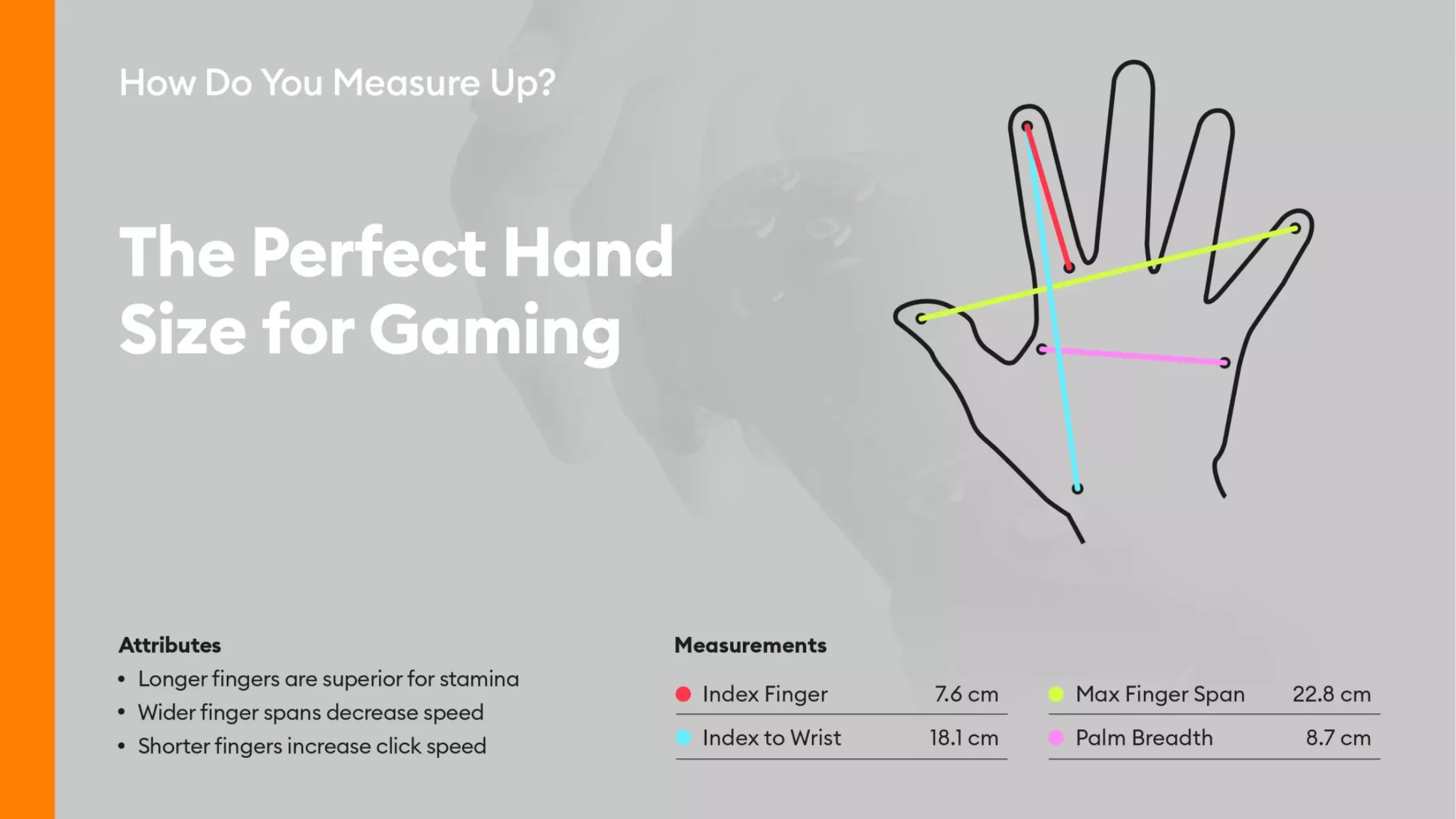If you were asked to describe a gamer, you might think of a lazy teenager drooling on the sofa. But many of the world's most successful gamers have turned their hobbies into careers and made a lot of money. So, what exactly do you need to be a professional gamer A recent report in the British Daily Mail revealed the ideal age, physique, diet and even hand size of professional gamers

In a new study commissioned by the e-sports platform stakester, Dr. Lindsay merilai, a senior E-sports doctor, investigated more than 90 game players aged 18-44.
The study found that players with smaller hands are better at high-intensity games such as Mario racing. Those with larger hands performed better in longer matches that required more endurance, including call of duty and FIFA.
Participants also completed a mouse click speed test. The results showed that in the 5-second test, people with short fingers and small hands clicked faster. In the 30 second test, people with large finger span and palm width performed best. In the 100 second test, people with longer fingers performed best.
In general, the best hand size for game players is about 7.6cm from the tip of the index finger to the root of the index finger, about 18.1cm from the tip of the index finger to the crease of the wrist, about 22.8cm of the maximum finger span, and about 8.7cm of the palm width.
Researchers at the Sports University of Cologne in Germany found that professional gamers face the same stress as marathon runners. The most important thing for E-sports players is to maintain their vitality and good physical condition: they should have both anaerobic training and aerobic exercise.
"The production of cortisol (stress hormone) is similar to that of racing drivers." Professor ingoflorbers, who led the research, said, "this is combined with high pulse, sometimes as high as 160-180 times per minute, which is equivalent to a very fast run, almost a marathon."
As for diet, Professor florbers found that professional gamers consume much less sugar and fast food than the general public. They are not "junk food maniacs" in people's eyes.
On average, professional gamers have a very short career, usually ending around the age of 25. However, with proper training and better nutrition, gamers can extend their career for up to five years.
In addition, video games require constant eye focus, which leads to a higher risk of computer vision syndrome. In view of this, people with myopia or hyperopia, or other eye health problems, may be difficult to become professional gamers.